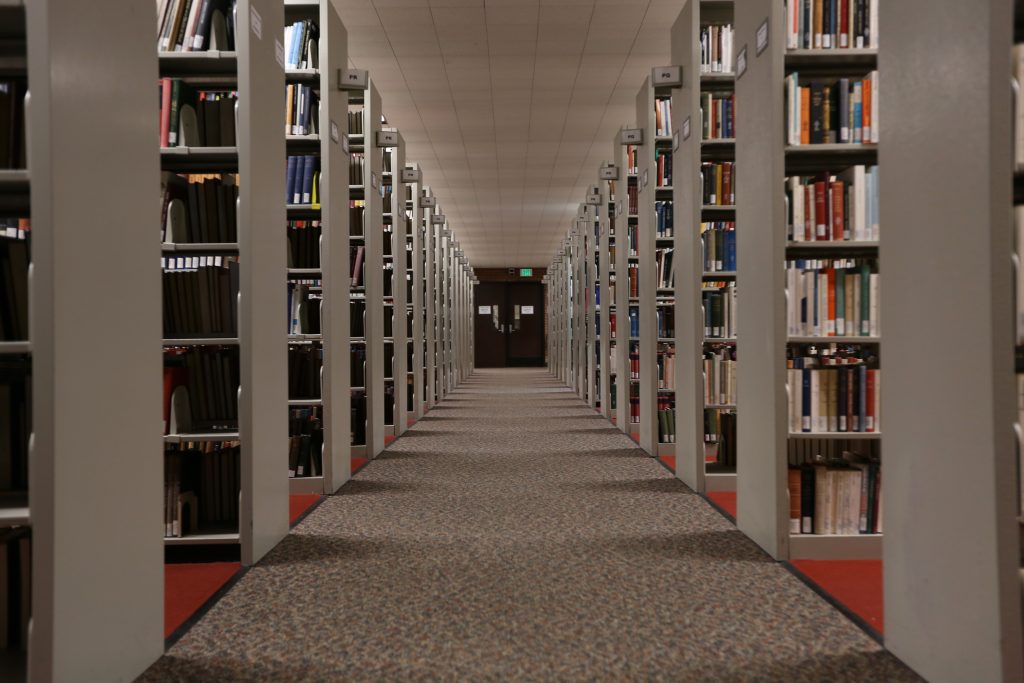Part of the Glenn G. Bartle Library will undergo renovations starting in July 2021 to remove asbestos and perform extensive mechanical updates.
Faculty leading the library’s third-floor renovation designs are considering student input to create a study space best suited for studying. The project has a four- to five-year timeline and, although it is still in the planning phase, is expected to be completed by fall 2024.
According to the Binghamton University website, the renovations will include asbestos abatement and the installation of new flooring, ceilings and lighting. Mechanical systems and energy management systems will also be upgraded, and the third floor will be connected to the existing south stair tower.
The third floor is currently home to an adaptive technology room, reservable group study rooms, open group study rooms and individual study carrels.
The Student Library Advisory Committee (SLAC) is a campus organization that allows for communication between students and the University Libraries. Megan Benson, SLAC creator and instructional outreach librarian at BU, wrote in an email that the organization values student ideas.
“I started [SLAC] this semester in order to gain student input concerning library services, resources, spaces and policies,” Benson wrote. “Members are both undergraduate and graduate students and we meet twice a semester.”
Benjamin Levine, a first-year graduate student studying geography, was nominated to join SLAC this semester. He said he is looking forward to a quiet space for reading newspapers and periodicals after the renovation.
“I thought it would be a good opportunity to get involved with the future of an important campus space,” Levine said. “Since joining, I’ve enjoyed listening to the input of library staff and other students on current library space and its future. I’m learning a lot about how University Libraries work.”
Benjamin Buchanan, a junior majoring in computer science, said he hopes to see more group study rooms in the space.
“I know sometimes it’s hard to get one when things are busy, and maybe adding more rooms would help with that congestion,” Buchanan said.
Jordan Dundas, a first-year graduate student studying accounting, said she thinks having more outlets would be beneficial to the students who prefer to study in the library.
“I’d love to see more outlets,” Dundas said. “One of the hardest parts of studying in the library is the lack of places to charge my laptop and it would make life a lot easier.”
Other students, including Samantha Ziesel, a junior majoring in integrative neuroscience, agreed. Ziesel said the renovation is needed.
“I’m happy they’re redoing the third floor,” Ziesel said. “I think it’s time for them to clean the place up. Along with the new changes, I hope to see new desks with lights underneath and chargers.”
SLAC is asking students for their opinions on the changes via an online form, which can be found in the news and events section on the University Libraries website. The current form asks students about color-coding preference for the new floor plans.
In addition to the form, University Libraries has hosted three open forums this semester, one on Nov. 21 and two on Nov. 22, with the goal of presenting information about the renovations and gaining feedback from students, faculty and staff. According to Benson, some of the feedback from the meetings might be used in the final plans for the renovations.
“We heard some fantastic ideas that we’ll be passing along to the design team,” Benson said.
Jill Dixon, associate University librarian for public services and collections, said many students have already expressed interest in a variety of study spaces.
“The renovation will allow us to transform the floor into an innovative, inviting space for study, teaching and research,” Dixon said. “Students are interested in group study rooms, an enclosed quiet study area and a quiet lounge area for reading. They also want to have access to our books and lots of outlets. In [SLAC], the students expressed interest in the Digital Scholarship Center and provided ideas for workshops.”
The Digital Scholarship Center would expand the digital scholarship services currently offered through the University, which provides research practice and digital creative activities while educating students and faculty through workshops.
Dixon said students who want more information on the renovations or are interested in participating in a focus group about the changes should contact her.



